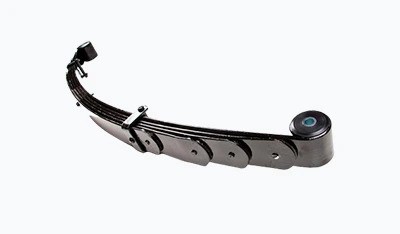Tel: 0129-4001010 Phone: +91 730 321 5033
Email: cs@absoluteveritas.com
BIS CERTIFICATION FOR LAMINATED SPRINGS STEEL IS 3885: PART 1:1992
In today's competitive landscape, maintaining market presence without a certified, high-quality product can be challenging. Obtaining a BIS license may also be essential for selling products in the Indian market. To achieve BIS certification and ensure product quality, manufacturers must adhere to the specified Indian standards.
Let's delve deeper into at IS 3885: Part 1: 1992 Steel for the manufacture of laminated springs for railway rolling stock.
This specification outlines the criteria for hot rolled steel flat sections used in manufacturing laminated springs for railway rolling stock. Steel flats meeting this Indian Standard can be produced from steel ingots, billets, and blooms conforming to IS 8052:1990.
The steel must conform to one of the four specified grades outlined in the standard. IS 8910:1978 lays down the general material supply requirements. Steel production must utilize any steel-making process excluding the Bessemer process, followed by either secondary refining or secondary vacuum melting.
For each specific size of the finished steel product, the size of the ingot, billet, or continuous cast billet must be such that a minimum reduction ratio of 16:1 is maintained from the minimum cross-sectional area of the ingot, billet, or continuous cast billet to the maximum cross-sectional area of the product. However, alternative reduction ratios may be established through mutual agreement between the purchaser and the manufacturer.
The hot-rolled material should be devoid of detrimental defects like seams, folds, laps, cracks, deep pits, grooves, excessive scaling, and other issues that could lead to cracking during hardening or affect its functionality. The surface should exhibit a reasonably smooth texture without any distortion, twists, or kinks.
TESTS
The subsequent test must be conducted for Laminated Springs for Railway Rolling Stock.
-
Chemical composition
-
Decarburization
-
Inclusion rating
-
Freedom from defects
-
Rolling tolerances
-
Cambering test
MARKING:
Marking and packaging procedures must comply with Indian standards. Every flat should bear the manufacturer's name or trademark, grade, and a cast number or any other identification mark enabling traceability to its origin. Additionally, the standard mark (ISI Mark) may be applied to the material.
Manufacturers are required to secure a BIS license from the Bureau of Indian Standards in order to utilize the standard mark (ISI Mark). The Bureau issues licenses following a thorough evaluation of manufacturing infrastructure, production processes, and quality control and testing capabilities conducted during an on-site visit to the manufacturing premises.
PROCESS FOR BIS ISI MARK CERTIFICATION

BIS CERTIFICATION PROCESS
Acquiring a BIS license requires a comprehensive review of manufacturing infrastructure, quality control abilities, testing resources, and production procedures. This thorough assessment guarantees that products not only adhere to regulations but also prioritize consumer safety and reliability.
NOTE:
For comprehensive guidance on the BIS ISI Certification process, please explore:
WHY USE ABSOLUTE VERITAS?
Absolute Veritas is a prominent organisation from the private sector of India primarily dealing with the Inspection, Testing, Audits, Certification of products& consulting services to various industries in India and worldwide, ensuring compliance with regulatory standards and industry requirements. Offering a comprehensive range of services including product certification, testing, training, auditing, and compliance services, Absolute Veritas helps manufacturers and importers achieve higher production efficiency and quality standards.
Absolute Veritas (AV) will handle end to end pre-registration request, sample preparation, documentation, testing and application process for FMCS Certification
For any questions regarding the most recent update on FMCS registration licenses, please reach out to us via email at cs@absoluteveritas.com








 ❮
❮
